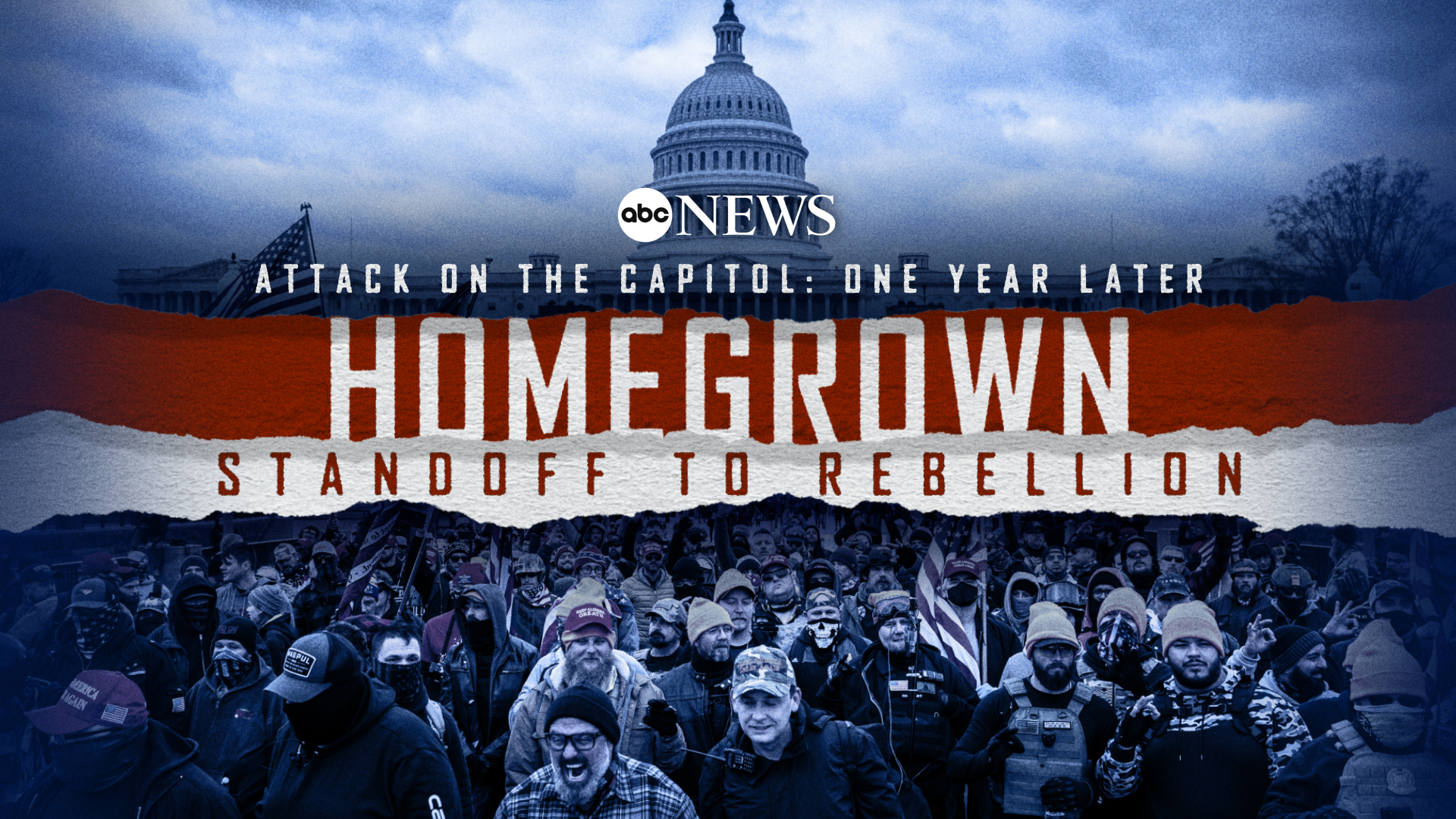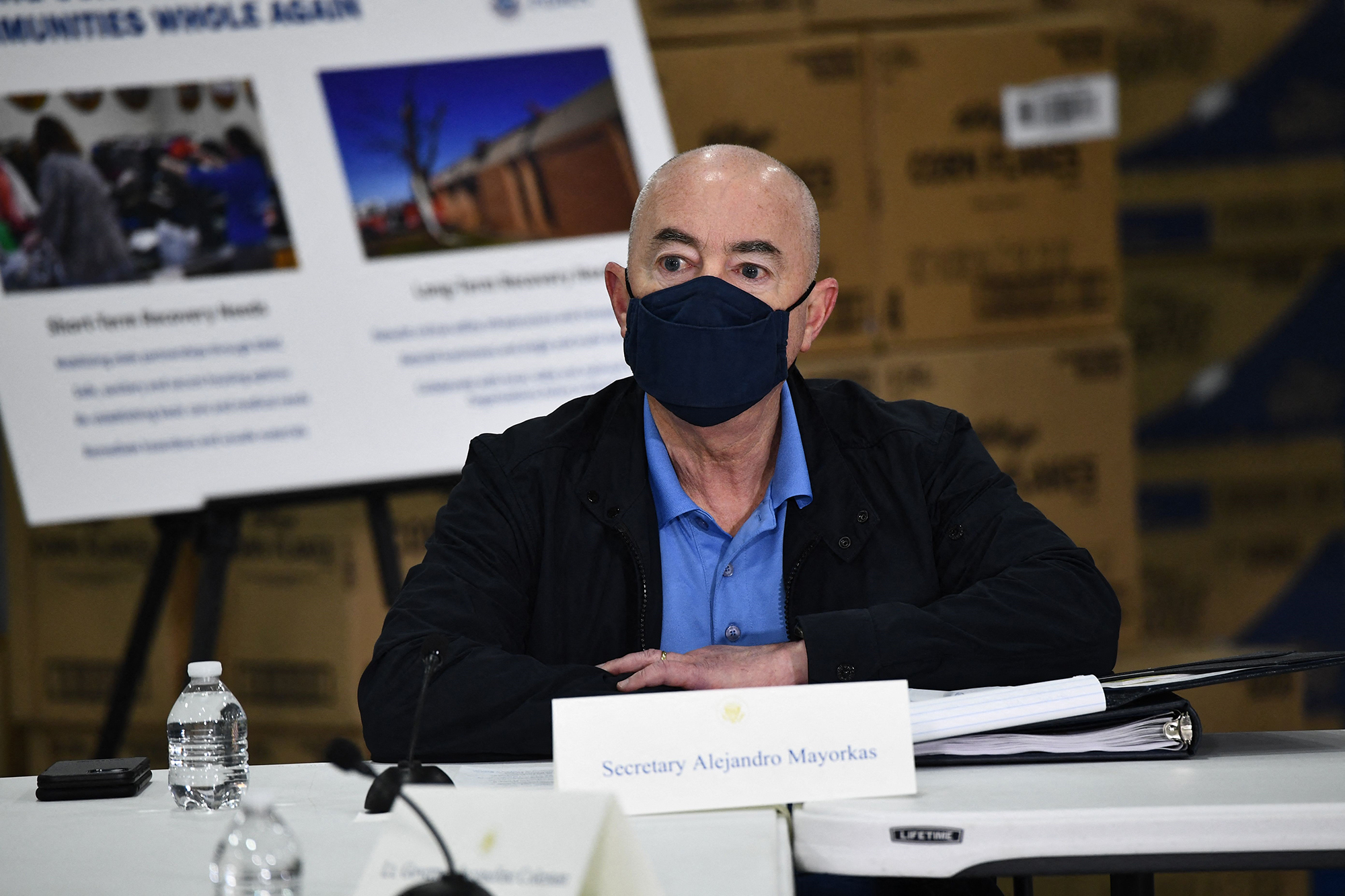On Jan. 6 anniversary, Homeland Security focused on domestic violent extremism
DHS Secretary Mayorkas calls it one of "the greatest terrorism-related threats."
Just days before the anniversary of the the attack on the U.S. Capitol on Jan. 6 attack at the United States Capitol, Homeland Security Secretary Alejandro Mayorkas said domestic violent extremism remains one of "the greatest terrorism related threats" the country faces.


Homegrown: Standoff to Rebellion
A look at the days, events and conversations leading up to Jan. 6, 2021, from the eyes of anti-government groups, extremism experts and several ABC News correspondents who were at the Capitol that day.
"Over the past year, we in the Department of Homeland Security have improved and strengthened our approach to combating this dynamic, evolving threat," Mayorkas told reporters at a briefing on Tuesday. He detailed some of the steps the department has taken, such as convening conference calls to discuss emerging threats and sharing intelligence bulletins of which he said DHS has sent more than 80 on domestic violent extremists alone.
At the same time, he said there are no credible threats ahead of the Jan. 6 anniversary.
Those who attacked the Capitol last year included groups that align with the department's definition of domestic violent extremism.
Mayorkas said DHS is "very focused" on the "lone-wolf actor," something proving hard to stop, or a "loose affiliation" of people to one group.
"We are operating at a heightened level of vigilance because we are at a heightened level of threat," the secretary said. "The threat of domestic violent extremists is a very grave one."
On Jan. 6, ABC News Live will provide all-day coverage of events marking one year since the attack on the U.S. Capitol and the continuing fallout for American democracy.
"This was an assault that requires attention," Mayorkas said, adding it has gotten the proper response which is to investigate what occurred. He said encrypted messaging apps make things more challenging to investigate, and stressed it is all being done with civil liberties in mind.

He said there are wha he called two "predicates" that define domestic violent extremists.
"One of the predicates is ideologies of hate. And the second predicate is false narratives," he said. "And that is where misinformation comes into play. What is important in defining domestic violent extremism" he said, is "standing by and adhering to our values of free speech is not the ideologies of hate.”
Mayorkas stressed that it isn’t the false narratives themselves "but rather their connectivity to violence that creates the threat to which we are obligated to respond. That is what is what domestic violent extremism is about is the connectivity between false narratives and ideologies of hate to violence."
When asked by ABC News , Mayorkas couldn’t point out specific examples of cases in which they’ve disrupted domestic violent extremism activity or speech because some are ongoing criminal cases.
Mayorkas, though, did not mince words speaking to the American people about assurances he can provide regarding another Jan. 6-style attack.
"We in the Department of Homeland Security, along with our state, local tribal territorial partners, as well as our partners and courts across the federal government are dedicated 24 hours a day seven days a week to ensure that another January 6 does not occur."



